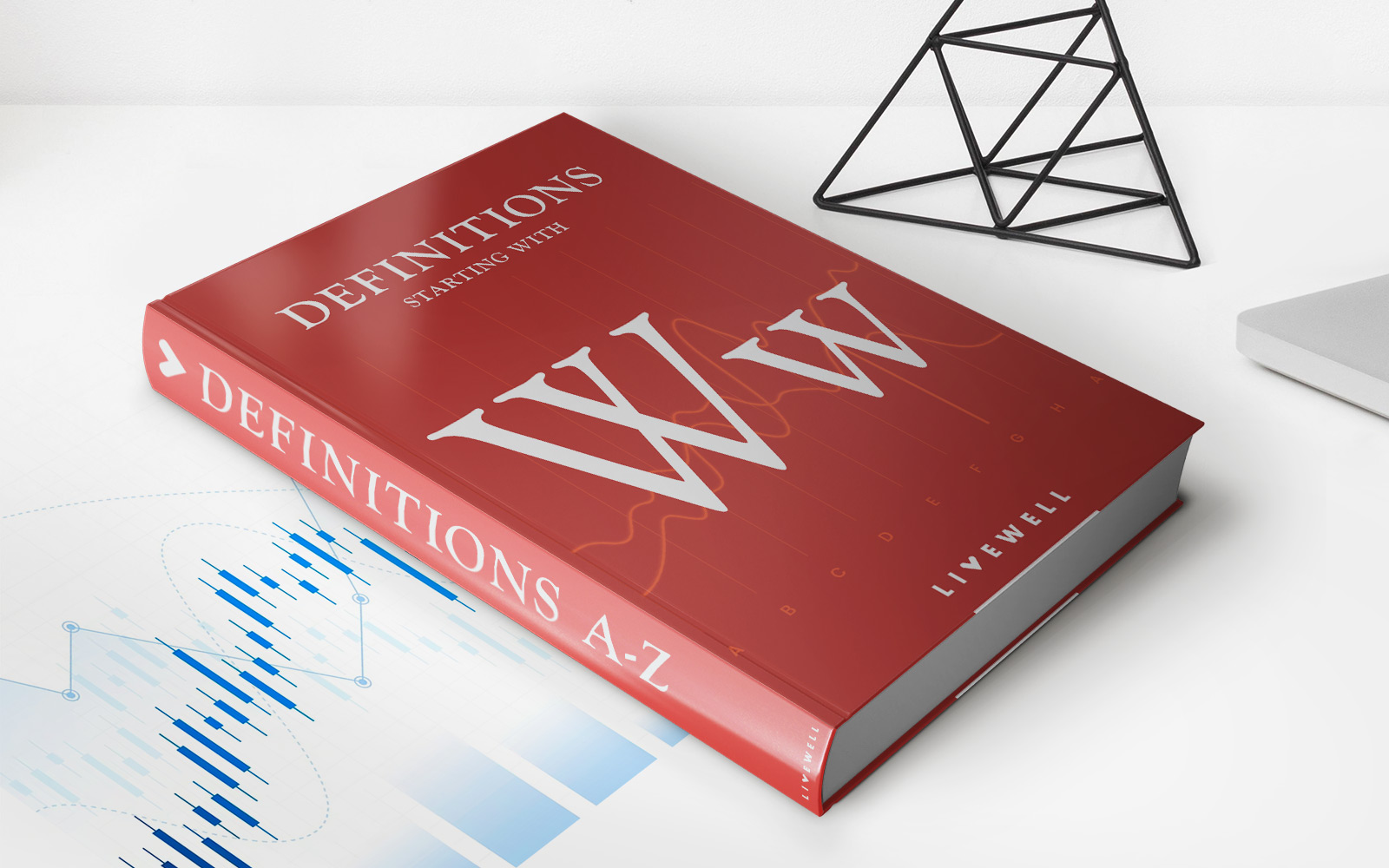

Finance
What Are Warranties In Insurance
Published: November 23, 2023
Learn about warranties in insurance and how they can protect your finances. Understand the importance of having a solid warranty coverage to safeguard your financial investment.
(Many of the links in this article redirect to a specific reviewed product. Your purchase of these products through affiliate links helps to generate commission for LiveWell, at no extra cost. Learn more)
Table of Contents
Introduction
Welcome to the world of insurance, where policies are designed to protect individuals and businesses from unexpected events and provide financial security. Within the realm of insurance, there is an important concept known as warranties. Warranties play a crucial role in insurance contracts as they help define the terms and conditions of coverage, ensuring clarity and fairness for both the insured and the insurer.
When it comes to insurance, a warranty is a statement made by the policyholder that serves as a guarantee of certain facts or conditions. It is a promise that specific conditions will be met to maintain the validity of the insurance contract. Warranties are essential in determining the scope of coverage and the obligations of the insured party.
In this article, we will explore the concept of warranties in insurance in more detail. We will delve into their definition, the different types of warranties, their importance, and how they play a role in claim settlement. We will also address common misconceptions surrounding warranties and provide tips on how to navigate them effectively.
Understanding warranties in insurance is crucial for policyholders as well as insurance professionals. It ensures that everyone involved comprehends the terms and conditions of the policy, minimizing uncertainties and potential disputes. Now, let’s dive deeper into the world of insurance warranties and explore their significance in the insurance industry.
Definition of Warranties in Insurance
In the context of insurance, a warranty refers to a specific condition or promise made by the policyholder to the insurer. It is a statement that serves as a guarantee that certain facts or conditions will be upheld throughout the duration of the insurance contract. Warranties play a crucial role in determining the scope of coverage and the responsibilities of the insured party.
Unlike ordinary warranties, which usually relate to the quality or performance of a product, warranties in insurance are concerned with the accuracy of the information provided by the policyholder and the compliance with certain conditions stated in the policy. These conditions may relate to the property being insured, the nature of the risk, or the behavior of the insured.
Warranties can be broadly categorized into two types: express warranties and implied warranties. Express warranties are explicitly stated in the insurance policy, leaving no room for ambiguity or interpretation. They are specific conditions or requirements that must be met by the insured party. Implied warranties, on the other hand, are not explicitly written out in the policy but are assumed to be present by law. These warranties are based on the reasonable expectations of the insurer.
For example, in a property insurance policy, an express warranty may require the policyholder to install a security system and maintain it throughout the term of the policy. This warranty ensures that the insured property is adequately protected, reducing the risk of theft or damage. Failure to comply with this express warranty may result in the denial of a claim or the cancellation of the policy.
Implied warranties, on the other hand, may include expectations of good faith and honesty from the insured party. These implied warranties are inherent in every insurance contract and are generally assumed to be present, even if not expressly stated in the policy. Insured parties are expected to provide accurate and truthful information when applying for insurance coverage.
It is important for both the insured and the insurer to fully understand and comply with the warranties stated in the insurance policy. Warranties serve as the backbone of the contract, ensuring that both parties fulfill their obligations. Failure to meet the requirements of the warranties may result in significant consequences, including denial of claims or the forfeiture of coverage.
Now that we have established the definition of warranties in insurance, let’s explore the different types of warranties that may be encountered in insurance policies.
Types of Warranties
Warranties in insurance can vary in their nature and scope, depending on the type of policy and the specific requirements set by the insurer. Here are some common types of warranties that are often encountered in insurance contracts:
- Affirmative Warranties: Also known as positive warranties, these are explicit statements made by the insured party to guarantee the existence or non-existence of a specific fact. For example, in a life insurance policy, the insured may affirmatively warrant that they are a non-smoker or that they have no pre-existing medical conditions.
- Premium Payment Warranties: These warranties pertain to the timely payment of insurance premiums. Policyholders are obligated to pay their premiums on time, as specified in the policy terms. Failure to fulfill this warranty may result in the cancellation of the policy or the denial of a claim.
- Occupancy Warranties: These warranties are common in property insurance policies and pertain to the use and occupancy of the insured property. For example, a policy may require the property to be used solely for residential purposes or may impose restrictions on vacant properties. Breaching an occupancy warranty may lead to coverage restrictions or the denial of a claim.
- Security Measures Warranties: These warranties require the insured party to implement certain security measures to mitigate risks. Examples may include installing security alarms, surveillance systems, or fire prevention equipment. Non-compliance with these warranties may result in reduced coverage or the rejection of a claim.
- Warranty of Good Faith and Honesty: This is an implied warranty that applies to all insurance policies. Policyholders have a duty to act in good faith and provide accurate information during the application process. Any intentional misrepresentation or non-disclosure of material facts may render the policy void.
These are just a few examples of the various types of warranties that may be included in insurance policies. It is essential for policyholders to carefully read and understand these warranties, as they form the basis of the insurance contract and can significantly impact coverage and claim outcomes.
Next, we will explore the importance of warranties in insurance and how they contribute to the overall functioning of the insurance industry.
Importance of Warranties in Insurance
Warranties play a vital role in insurance contracts, serving as a mechanism to ensure fairness, mitigate risks, and establish clear terms and conditions. Here are several reasons why warranties are important in the insurance industry:
- Risk Assessment: Warranties allow insurers to accurately assess the risks associated with insuring a specific individual, property, or business. By requiring policyholders to provide specific information or adhere to certain conditions, insurers can evaluate the potential for losses and determine appropriate premiums and coverage levels.
- Prevention of Moral Hazard: Moral hazard refers to the increased likelihood of risky behavior or intentional loss occurrences when individuals or entities are insured. Warranties help minimize moral hazard by holding policyholders accountable for their actions and ensuring that they take necessary precautions to mitigate risks. This helps maintain the stability and sustainability of insurance contracts.
- Clarity and Transparency: Warranties provide clarity and transparency regarding the rights and obligations of both the insured and the insurer. By clearly defining the conditions that must be met, warranties reduce the likelihood of misunderstandings or disputes regarding coverage. This promotes a fair and equitable relationship between the insured and the insurer.
- Protection Against Fraudulent Claims: Warranties act as a deterrent against fraudulent claims. By establishing specific conditions in the insurance contract, insurers can verify the accuracy of information provided by the policyholder. This helps prevent fraudulent activities and ensures that claims are paid to those who genuinely meet the requirements of the policy.
- Enhanced Underwriting Process: Warranties are crucial during the underwriting process, as they enable insurers to tailor coverage based on the specific risks and circumstances of the policyholder. With the information provided through warranties, insurers can accurately assess the insurability of the applicant and determine appropriate terms and premiums.
Overall, warranties serve as a fundamental component of insurance contracts, contributing to the stability and proper functioning of the insurance industry. They enable insurers to assess risks, prevent moral hazard, ensure transparency, protect against fraudulent claims, and enhance the underwriting process.
Next, we will explore the role of warranties in claim settlement and how they impact the outcomes of insurance claims.
Role of Warranties in Claim Settlement
Warranties play a significant role in the claim settlement process of insurance. They serve as an important determinant of whether a claim will be honored and paid by the insurer. Here’s a closer look at the role of warranties in claim settlement:
- Eligibility of Claims: Warranties help determine the eligibility of a claim. When a claim is made, the insurer will review the terms and conditions of the policy, including any warranties that were made. If the insured party has not complied with the warranties, the insurer may deny the claim on the basis of non-compliance.
- Evidence of Compliance: Warranties serve as evidence that the insured party has fulfilled the requirements stated in the policy. In the event of a claim, the policyholder may need to provide proof of compliance with the warranties, such as documentation of security measures or occupancy status. This helps support the validity of the claim and ensures that the insured party has met their obligations.
- Impact on Coverage: Compliance with warranties can impact the coverage provided by the insurance policy. If the insured party fails to meet the requirements of a warranty, the insurer may reduce the coverage or exclude specific damages related to the non-compliance. This can result in a reduced claim amount or the denial of coverage for certain losses.
- Exclusions and Limitations: Warranties may include specific exclusions or limitations that affect claim settlement. For example, if a property insurance policy includes a warranty requiring a functioning fire alarm system, and it is found that the system was not operational at the time of a fire, the insurer may deny the claim due to the breach of warranty.
- Good Faith Obligation: Warranties highlight the importance of acting in good faith during the claim settlement process. Policyholders have an obligation to provide accurate and truthful information when submitting a claim. Non-compliance with this obligation, such as providing false information or misrepresenting facts, may result in the denial of the claim and potential legal consequences.
It is crucial for both policyholders and insurers to understand the role of warranties in the claim settlement process. Policyholders must ensure that they comply with the warranties stated in the policy to avoid potential claim denials. Insurers must carefully review the warranties and assess their impact on the coverage and validity of a claim.
However, it is important to note that the interpretation and application of warranties in claim settlement can vary depending on the specific policy, jurisdiction, and individual circumstances. Consulting with an insurance professional or seeking legal advice in case of disputes is recommended to ensure a fair and accurate claim settlement process.
Next, let’s address some common misconceptions about warranties in insurance that can lead to confusion and misinformation.
Common Misconceptions about Warranties in Insurance
Warranties in insurance can often be misunderstood, leading to misconceptions and confusion among policyholders. It’s important to address these misconceptions to provide clarity and ensure accurate understanding. Here are some common misconceptions about warranties in insurance:
- Warranties are the same as exclusions: One common misconception is that warranties and exclusions are the same. While both can impact the coverage provided by an insurance policy, they are different concepts. Warranties are specific conditions or promises made by the insured, while exclusions are specific situations or events explicitly excluded from coverage in the policy.
- Warranties are just technicalities: Some policyholders may view warranties as mere technicalities that have little significance. In reality, warranties are legally binding and serve as the basis for coverage in the insurance contract. Failure to comply with warranties can result in claim denials or reduced coverage.
- Non-compliance with warranties always leads to claim denial: While non-compliance with warranties can have serious consequences, it does not always automatically result in claim denial. The impact of breaching a warranty on a claim depends on various factors, including the nature of the breach, the materiality of the warranty, and the jurisdiction where the policy is issued.
- Warranties are burdensome for the insured party: Some individuals may view warranties as burdensome requirements imposed by insurers. However, warranties are designed to mitigate risks and ensure fair terms and conditions for both parties. Compliance with warranties can help policyholders in the long run by reducing the likelihood of disputes and ensuring adequate coverage in case of a claim.
- Warranties are only applicable to property insurance: While warranties are commonly associated with property insurance, they can apply to various types of insurance policies. Life insurance, health insurance, and liability insurance policies can also include warranties that must be met by the insured party. It’s essential to carefully review the policy to understand the warranties specific to each type of insurance.
Understanding the true nature and implications of warranties in insurance is crucial to avoid misunderstandings and ensure compliance with policy requirements. If there are any uncertainties or questions regarding the warranties in an insurance policy, it is advisable to seek clarification from the insurance provider or consult with an insurance professional.
Next, we will provide tips on how to effectively navigate warranties in insurance to maximize coverage and minimize associated risks.
How to Navigate Warranties in Insurance
Navigating warranties in insurance effectively is essential to ensure proper coverage and avoid potential claim denials. Here are some tips to help policyholders navigate warranties in insurance:
- Read and Understand the Policy: Thoroughly read and understand the insurance policy, including any warranties stated within it. Pay attention to the specific conditions and requirements imposed by the warranties, as they can impact coverage and claim settlement.
- Provide Accurate Information: When applying for insurance coverage, provide accurate and truthful information to the insurer. This is especially important as non-disclosure or misrepresentation of material facts can lead to voiding the policy or denial of future claims.
- Comply with Express Warranties: Follow the specific requirements stated in the express warranties of the policy. If a warranty mandates the installation of security measures, regular property inspections, or regular health check-ups, ensure compliance to maintain the validity of the policy.
- Seek Professional Advice: If there are any uncertainties or questions regarding the warranties in the insurance policy, seek advice from insurance professionals or legal experts. They can provide guidance on the interpretation and implications of the warranties, ensuring compliance and avoiding potential pitfalls.
- Maintain Documentation: Keep thorough and up-to-date documentation of compliance with warranties, such as receipts, maintenance records, and inspection reports. This documentation can serve as evidence in case of a claim and help support the validity of the claim.
- Review Regularly: Regularly review the insurance policy and assess if any changes have occurred that may affect compliance with warranties. For example, changes in property occupancy status, security measures, or personal health conditions should be communicated to the insurer to ensure ongoing compliance.
- Address Breaches Promptly: In the event of a breach of a warranty, notify the insurer as soon as possible and take necessary actions to rectify the breach. Failure to address breaches in a timely manner may result in the denial of a claim and potential repercussions.
- Seek Clarification: If there is any ambiguity or confusion regarding the warranties, contact the insurance provider for clarification. It is crucial to have a clear understanding of the requirements and obligations imposed by the warranties to comply effectively.
By following these tips, policyholders can navigate warranties in insurance more effectively, ensuring compliance, maximizing coverage, and reducing the risk of claim denials.
Now, let’s summarize the key points discussed in this article.
Conclusion
Warranties play a crucial role in insurance contracts, establishing the terms and conditions that both the insured and the insurer must adhere to. They serve as guarantees of certain facts or conditions and contribute to the fairness and transparency of insurance policies. Understanding the importance of warranties in insurance is essential for both policyholders and insurance professionals.
Throughout this article, we have explored the definition of warranties in insurance and identified different types of warranties that can be encountered in insurance policies. We have also discussed the significance of warranties in assessing risks, preventing moral hazard, ensuring clarity, and protecting against fraudulent claims.
Furthermore, we have highlighted the role of warranties in claim settlement, emphasizing their impact on claim eligibility, coverage, and the obligations of policyholders during the claims process. By complying with warranties and fulfilling the requirements, policyholders can maximize the chances of a successful claim settlement.
It is important to address common misconceptions about warranties in insurance, dispelling misunderstandings and clarifying their true nature and implications. By understanding that warranties are legally binding and vary from exclusions, policyholders can navigate them effectively and mitigate potential risks.
To navigate warranties in insurance successfully, policyholders should read and understand their policy, provide accurate information, and comply with express warranties. Seeking professional advice, maintaining proper documentation, and promptly addressing breaches are also crucial steps. Regularly reviewing the policy and seeking clarification when needed further contribute to a smooth navigation of warranties.
In conclusion, warranties in insurance are instrumental in shaping the terms, obligations, and coverage of insurance contracts. Both policyholders and insurers must have a clear understanding of the warranties and their implications to ensure a fair and effective insurance relationship. By navigating warranties effectively, policyholders can enjoy the peace of mind that comes with adequate coverage and protection against unforeseen events.














